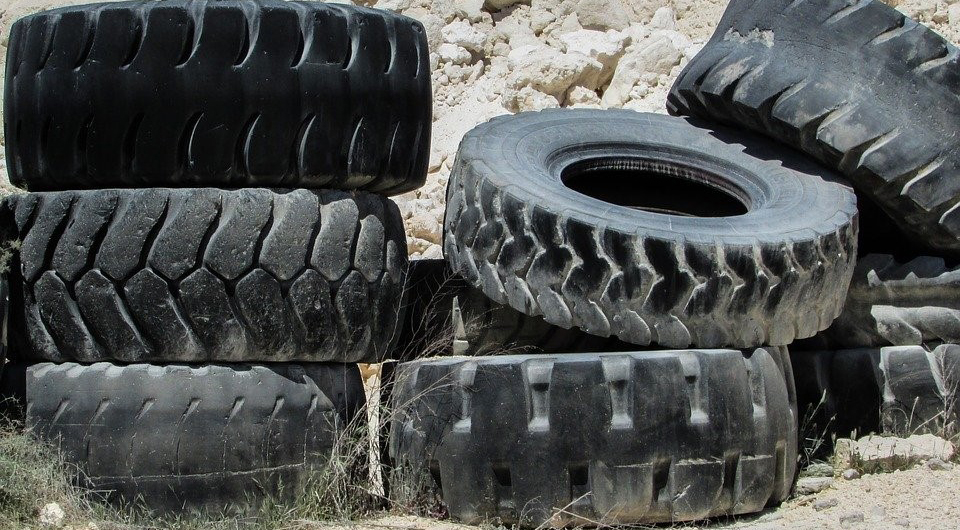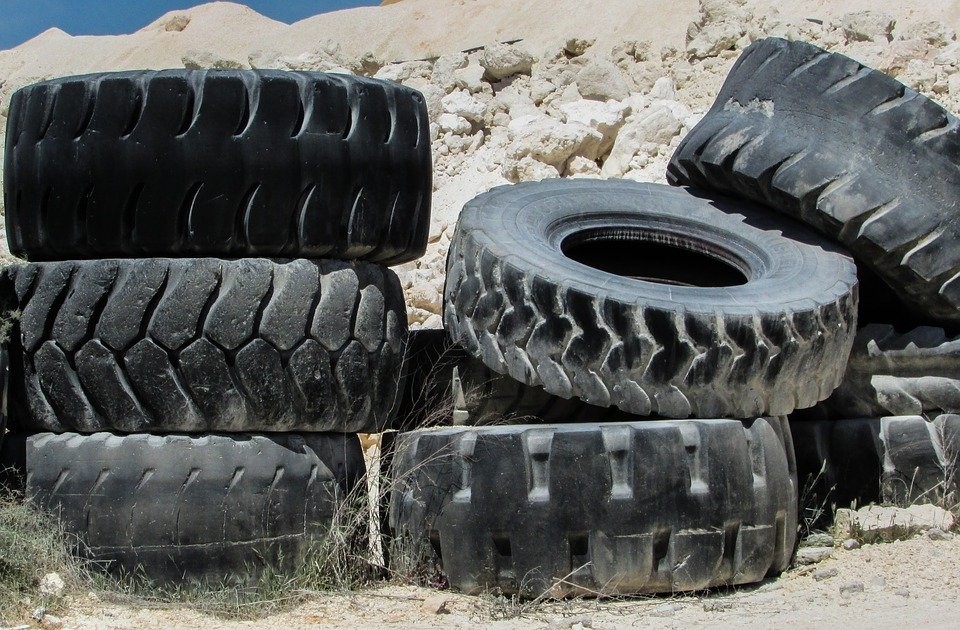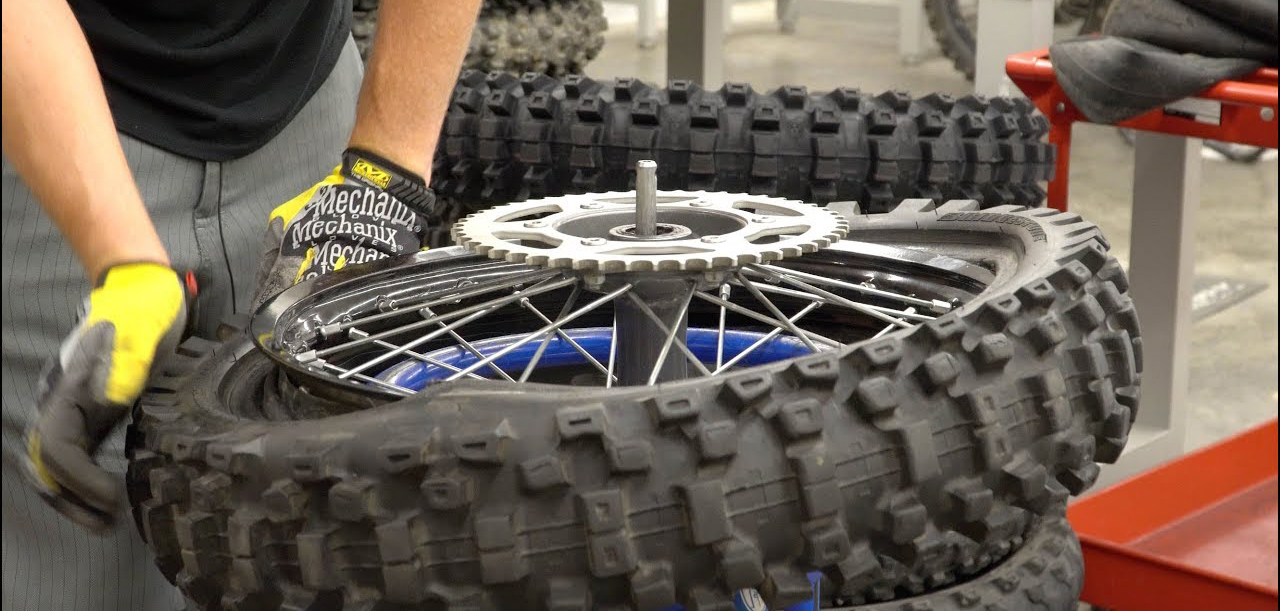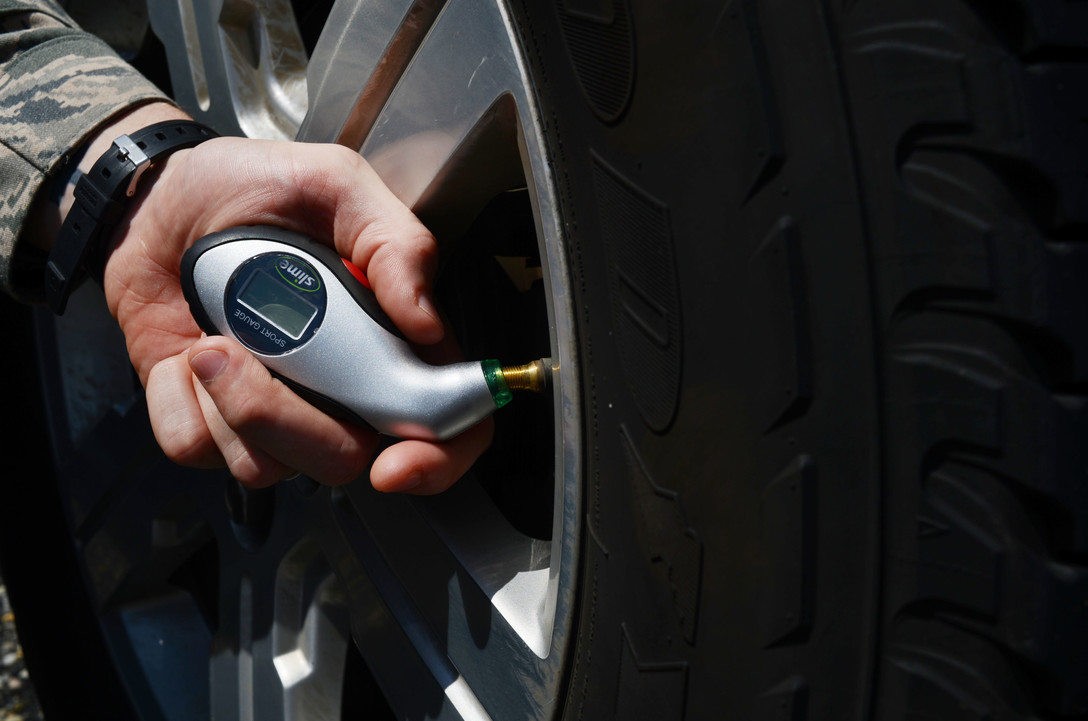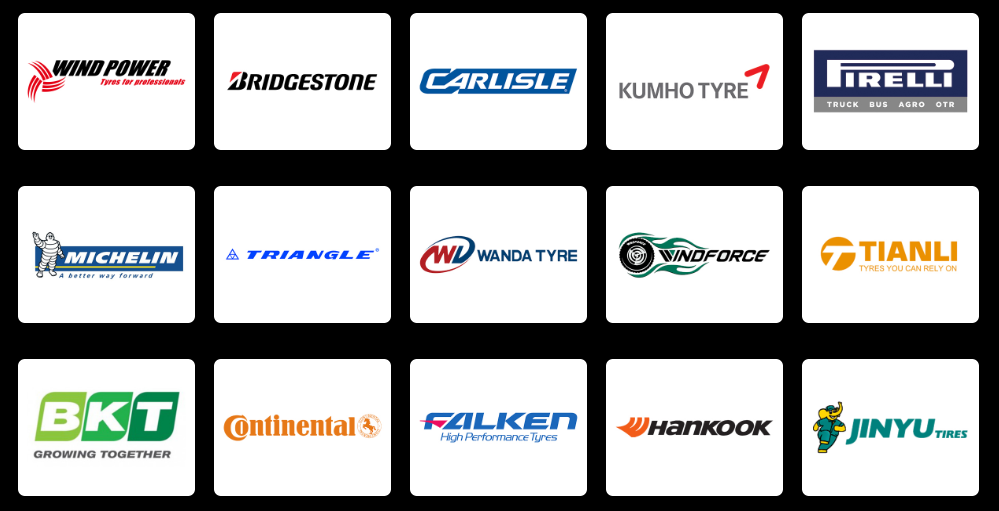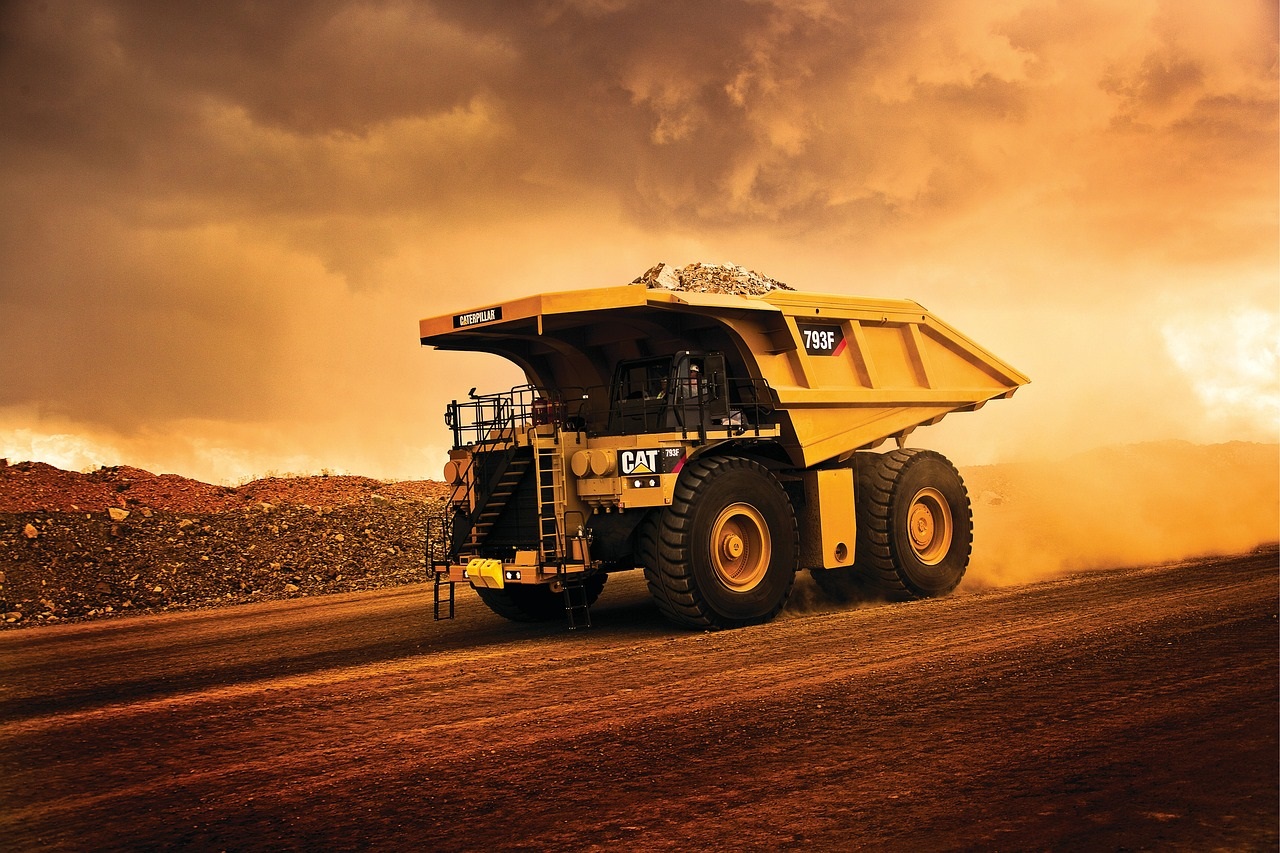
At a glance:
- Consider your equipment’s specific requirements, including size, weight, terrain, and conditions.
- Weigh the pros and cons of different tyre options by evaluating price, lifespan, performance, resistance to damage, and special features.
- Analyse the total cost of ownership, factoring in ongoing maintenance, repair, and replacement costs, as well as the tyre’s lifespan and performance, to determine the best long-term value.
Introduction
Earthmovers are essential heavy machinery for many industries, including mining, construction, and agriculture. These machines perform a variety of tasks, from excavating and hauling materials to grading and levelling terrain. To ensure the safe and efficient operation of an earthmover, selecting the right tyres is crucial.
Importance of Selecting the Right Earthmover Tyres
Fitting earthmover tyres to a machine is not as simple as selecting the first option available. These tyres are designed to ensure the safe and efficient operation of the machine, and choosing the wrong tyres can have severe consequences. The right tyres can improve traction, reduce fuel consumption, and minimise wear and tear on the machine. On the other hand, the wrong tyres can negatively impact performance, safety, and costs.
Impact of Choosing the Wrong Tyres
Choosing the wrong tyres can have a significant impact on the operation of an earthmover. For example, fitting tyres that are too small can cause the machine to sink into soft ground, reducing traction and increasing the risk of getting stuck. On the other hand, fitting tyres that are too large can cause the machine to become unstable, which can lead to accidents and injuries. Additionally, using tyres that are not suitable for the terrain can cause excessive wear and tear on the tyres, reducing their lifespan and increasing maintenance costs.
Benefits of Proper Tyre Selection
Proper tyre selection offers numerous benefits, including increased efficiency and productivity. When the right tyres are fitted to an earthmover, the machine can operate at its maximum capacity, reducing the time and cost associated with completing tasks. Additionally, the right tyres can improve safety by providing better traction and stability, reducing the risk of accidents and injuries.
Picking the Right Earthmover Tyre
Picking the ideal tyre for your earthmover can be a daunting task, but it can be broken down into a step-by-step approach.
Machine Size and Weight:
The size and weight of your earthmover will determine the size and load capacity of the tyres required.
Terrain Type:
The terrain type that the machine will operate on will determine the tread pattern required. For example, tyres with deep treads are ideal for soft ground, while tyres with shallow treads are better suited for hard surfaces.
Operating Conditions:
The operating conditions, such as temperature and humidity, can impact the performance of the tyres. For example, high temperatures can cause tyres to expand, reducing their lifespan.
Manufacturer Recommendations:
The manufacturer of your earthmover will provide recommendations for the type and size of tyres required.
Understanding Tyre Requirements
To select the right earthmover tyre, it is essential to understand the specific machinery and operation requirements. This includes identifying the load capacity, speed rating, and tyre size required for the machine. It is also important to consider the terrain and environmental conditions the machine will operate in.
Considering Load Capacity, Speed Rating, and Tyre Size
Load capacity, speed rating, and tyre size are crucial factors to consider when selecting the ideal earthmover tyre. Exceeding the load capacity of the tyre can cause excessive wear and tear on the tyres, reducing their lifespan and increasing the risk of accidents. Similarly, exceeding the speed rating of the tyre can cause it to overheat, leading to tire failure. Finally, selecting the wrong tyre size can affect the machine’s performance, stability, and safety.
Understanding the Terrain and Environmental Conditions
The terrain and environmental conditions the earthmover will operate in are critical factors to consider when selecting tyres. The tread pattern of the tyre should be suitable for the terrain type, with deep treads being ideal for soft ground and shallow treads for hard surfaces. Environmental conditions, such as temperature and humidity, can also impact the performance of the tyre. For example, high temperatures can cause tyres to expand, reducing their lifespan.
Researching Tyre Brands and Types
When researching tyre brands and types of earthmover equipment, it’s important to conduct thorough research to make an informed decision. This involves evaluating different brands, comparing various tyre types, and analysing the pros and cons of each based on specific requirements.
To start, it’s essential to research reputable tyre brands that specialise in earthmover equipment. By focusing on brands with a good reputation, it’s possible to find high-quality options that offer reliable performance and durability. Online reviews and customer feedback can be helpful resources when researching different brands.
Next, it’s important to compare the different types of earthmover tyres, including bias, radial, solid, and pneumatic options. Each type has its own set of advantages and disadvantages, and the choice will depend on specific equipment requirements, terrain, and conditions.
Bias tyres, for example, offer better traction and durability in harsh conditions but can produce more heat and wear more quickly. Radial tyres, on the other hand, provide a smoother ride and better fuel efficiency but may not perform as well in rough or uneven terrain.
Solid tyres are ideal for heavy-duty applications but can be more expensive and may require specialised equipment for installation and maintenance. Pneumatic tyres provide excellent shock absorption and can be used in a wide range of applications, but they are susceptible to punctures and require regular maintenance.
Consulting with Experts
Apart from conducting your research, it is also important to seek advice from tyre experts or manufacturers to help you select the right earthmover tyre. Consulting with experts can help you make a more informed decision and ensure that the tyre you select meets your specific needs.
Seeking Advice from Tyre Experts or Manufacturers
Tyre experts or manufacturers can provide valuable advice and information on selecting the right earthmover tyre. They can provide insights into the latest tyre technology, industry trends, and tyre performance. You can seek advice from experts by contacting them directly, attending industry events, or checking online resources.
Requesting Recommendations Based on Specific Needs
When consulting with tyre experts or manufacturers, it is essential to provide them with specific details about your machinery and operation requirements. This will enable them to provide recommendations on the ideal tyre for your needs. Be sure to provide details such as the type of equipment, the application, the terrain, and the load capacity.
Considering Professional Opinions on Tyre Performance and Durability
When selecting earthmover tyres, it is important to consider professional opinions on tyre performance and durability. Our tyre experts can provide valuable insights on tyre longevity, wear resistance, and performance in different applications. This can help you select a tyre that offers maximum efficiency and productivity while minimising maintenance costs.
Considering the Total Cost of Ownership
When considering purchasing tyres, it’s important to factor in the total cost of ownership to make an informed decision. This involves evaluating not just the initial cost of the tyres but also the ongoing maintenance, repair, and replacement costs associated with them.
One way to evaluate the total cost of ownership is to analyse the lifespan and performance of the tyres. Higher quality tyres may initially cost more but can provide a longer lifespan and better performance, which can lead to lower ongoing costs in terms of maintenance, repair, and replacement.
Additionally, it’s important to consider the specific application and environment in which the tyres will be used. For example, if the equipment is operating in harsh terrain or extreme weather conditions, it may require more frequent maintenance and replacement of tyres, which can add to the overall cost of ownership.
By taking these factors into consideration, it’s possible to make a more informed decision on which tyres will provide the best long-term value. It’s also important to keep in mind that ongoing maintenance and care, such as regular cleaning and proper inflation, can help extend the lifespan of tyres and reduce overall costs over time.
Safety Considerations:
When selecting earthmover tyres, safety should be a top priority. Ensuring compliance with safety standards and regulations is crucial to prevent accidents and downtime. Here are some safety considerations to keep in mind:
Ensuring Compliance with Safety Standards and Regulations
It is essential to ensure that the earthmover tyres you select comply with safety standards and regulations. This includes regulations such as those set by OSHA, MSHA, and other relevant regulatory bodies. Compliance with safety standards and regulations can help prevent accidents and ensure your machinery operates safely and efficiently.
Understanding the Risks of Using Incorrect or Inadequate Tyres
Using incorrect or inadequate earthmover tyres can pose significant safety risks. It can lead to accidents, machinery downtime, and increased maintenance costs. It is important to understand the risks associated with using the wrong tyres and select the appropriate tyres for your specific needs.
Prioritising Safety in Tyre Selection to Prevent Accidents and Downtime
Prioritising safety in tyre selection can help prevent accidents and downtime. It is essential to select earthmover tyres that are suitable for your machinery and operation requirements, as well as the terrain and environmental conditions. Proper tyre selection can help prevent accidents, increase productivity, and reduce maintenance costs.
Making Informed Decision
Before making a decision on which tyre to purchase, it is important to gather all the relevant information about the specific requirements of your equipment, as well as your budget.
To start, you should consider the size and weight of your earthmoving equipment, as well as the types of terrain and conditions it will be operating in. This will help determine the appropriate tyre size, tread pattern, and compound needed to provide optimal performance and durability.
Next, you can review the different tyre options available in Oceanic Direct and compare the pros and cons of each. Some factors to consider may include the price, expected lifespan, level of traction and grip, resistance to punctures and damage, and any special features or technologies offered.
Once you have gathered all the relevant information and weighed the pros and cons of each tyre option, you can make an informed decision based on your specific requirements and budget. It may also be helpful to consult with a tyre expert or mechanic to ensure that you are selecting the best option for your equipment and intended use.
Conclusion
Selecting the appropriate tyres for your earthmover is an essential decision impacting the equipment’s overall performance and safety. Following a step-by-step approach can help make an informed decision by evaluating specific requirements, budget, and total cost of ownership. Gathering information, weighing pros and cons, and analysing lifespan and performance can aid in selecting the best option. While a higher quality tyre might have an expensive initial cost, it can provide better performance and last longer, reducing overall costs over time.
